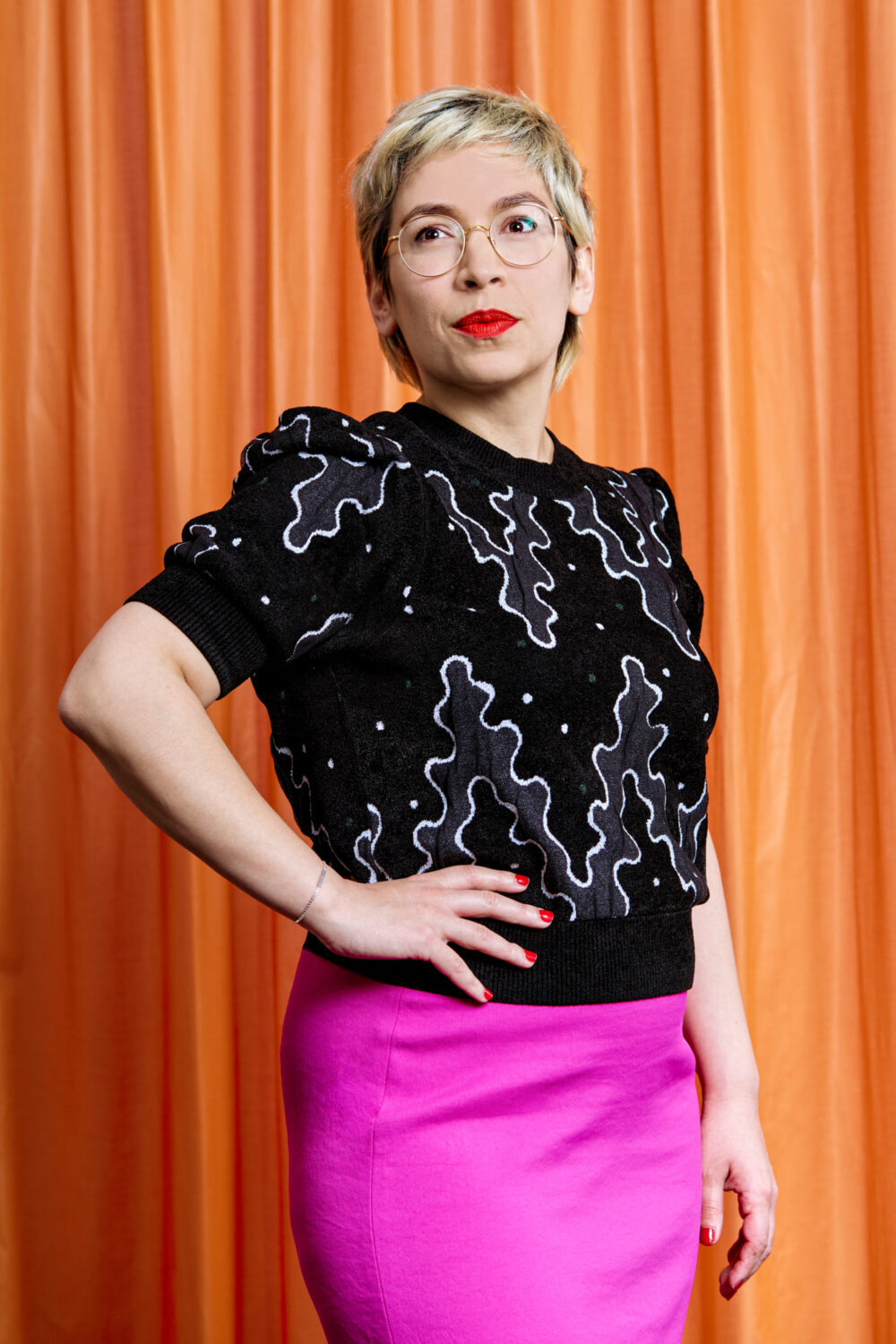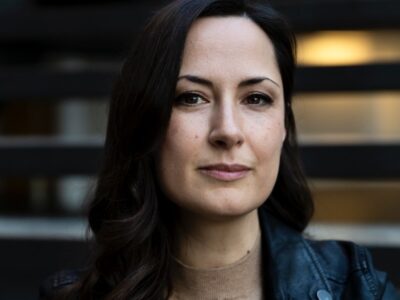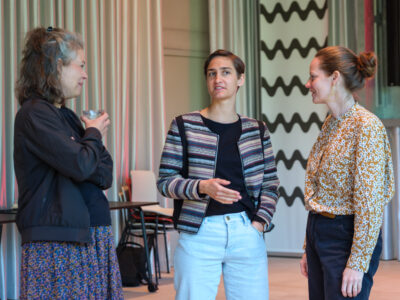Meet the residents: SUPERRR
In each edition of our newsletter, we introduce one of the organisations based at the Publix House. This time: Julia Kloiber, co-founder of the feminist organisation SUPERRR

What is the core of your work?
At a time when many people can hardly imagine a better world, we love pushing the boundaries of what seems possible and thinkable. We develop bold visions of the future that go beyond technological hype. We refuse to let Big Tech and its ideologies rob us of our imagination. As a feminist organisation, we crack open power structures, forge unlikely alliances, and remind policymakers that digital policy is social policy.
What is your goal?
In the long term: futures beyond patriarchal oppression, where technology serves people and the planet, contributing to the common good.
In the short term: people who can see through power structures – even in seemingly complex tech debates. People with a well-trained imagination muscle, able to envision alternatives to the status quo. People who encounter our work, discover courageous scenarios, and feel inspired to make them real.
What’s currently on your mind the most?
How we can break through the marketing echo chamber surrounding artificial intelligence and refocus attention on the real problems facing our societies. Not a day goes by without invitations to panels, funding calls or columns on AI landing in our inbox. Even in civil society, FOMO is spreading. The AI hype drowns out everything else, eclipsing precisely those (digital) political issues we should be talking about: the shift to the right, monopolies, infrastructural dependency, and much more.
What’s giving you headaches?
We could talk about platform power or regulation – but what truly troubles us is seeing more and more friends and collaborators, who once came to Germany full of hope and enthusiasm, packing their bags again. Many no longer feel safe because they are Muslim, or because they have a migration background. Even in cities like Berlin. As a diverse team, we experience these developments up close and are deeply concerned.
What has been your biggest success in recent months?
Our Digital Futures Gathering on digital violence. Just two weeks ago, together with almost 60 participants from across Europe, we explored what non-violent, future-proof digital worlds could look like. We invited people who rarely have the chance to share their experiences in digital policy debates – from women’s shelter workers and sex workers to community organisers and social workers. The aim was to strengthen networks between those working on tech policy and those active on the ground, to develop joint policy proposals and to train our collective imagination.
What’s your contribution to a plural media landscape?
On dingdingding.org, we’ve been publishing our own magazine for several years, focusing on topics that are often overlooked. Never alone – always in collaboration with inspiring co-authors. The latest issues explored Muslim Futures – a collection of essays and poems on decolonial, anti-racist and bold Muslim-intersectional visions of the future – and the untold stories of exploitation by Big Tech, written by African data workers.
Which journalistic project has impressed you most recently?
The Data Workers Inquiry project by Milagros Miceli. It’s an attempt to update Karl Marx’s 1880 Workers’ Inquiry for today’s data workers – those people essential to the functioning of AI systems, yet employed precariously and politically fragmented.
What does journalism urgently need?
A critical perspective on technology driven not by trends but by careful analysis of facts. Greater diversity on all levels: more diverse editorial leadership, broader thematic coverage, and renewed connections with audiences that journalism has lost touch with in recent years.
Who or what deserves much more attention?
The people in this country who volunteer to strengthen social cohesion and good community life. Those working in neighbourhood initiatives, youth projects, and shelters for the homeless or victims of violence – people who, in small but tangible ways, help to build better futures and give hope to all of us.
What’s the best reading for understanding the current moment?
The non-fiction book One Day All of This Will Be Against You (Eines Tages werden alle immer schon dagegen gewesen sein) by Omar El Akkad.
What should people listen to or watch right now?
The documentary series Tech Bro Topia by Deutschlandfunk. It examines the ideological mindset of California’s tech billionaires and shows how eccentric nerds turned into authoritarian tech bros. For more good recommendations, I suggest our own SUPERRR newsletter.
What do you wish for the Publix initiative?
That Publix becomes a place people look back on in twenty years’ time – from the perspective of a society with a plural media landscape and a vibrant democracy – and say: “That’s where so much of it began.”
Photo credit: Marlene Burz


